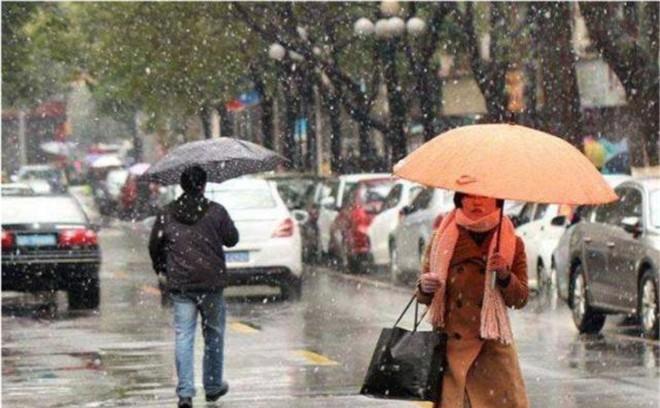"No autumn" has become a hot topic of discussion among netizens in recent times, and the temperature in many places has plummeted, "one night into winter", so that many people can't stand it. Obviously yesterday I was still wearing short sleeves, and today I have to wear a cotton jacket, and the temperature difference is so big that people are caught off guard. Especially recently, the super strong water vapor in the south coupled with the influence of cold air, the feeling of wet and cold "magic attack" is more obvious and more difficult. Affected by this, there is even a phenomenon that many places in the south are even colder than in the north.

According to the latest report of Xinhua News Agency, cold air is continuing to push south, and the coldest day in the second half of the year has appeared in south China, southwest China and other places. It is worth noting that in recent days, the highest temperature in Beijing is 17 °C, which is almost the same as that of Guangzhou at 18 °C, Nanning and Fuzhou at 17 °C! It should be known that in previous years, the temperature in Guangzhou fell to 18 ° C should be the coldest time in winter, generally concentrated around the beginning of January. Such an abnormal low temperature makes many people wonder why the temperature in the southern region does not rise but falls under the crisis of "global warming"? Is the "Great Ice Age" really coming?
In fact, seasonal cooling and global warming are not contradictory. Global warming is based on global average temperatures, sea level heights, Antarctic glaciers, mountain glaciers, etc. Seasonal temperature changes are affected by the rotation and rotation of the earth, the ocean monsoon and other factors. Some experts said that it is indeed a bit of an exaggeration to say that the "Great Ice Age" is about to make a comeback, but the recent abnormal cooling has actually been affected by the greenhouse effect.
Because the greenhouse effect can cause the global climate to be out of balance, triggering more and more extreme weather. These include sudden cold or sudden heat, persistent extreme heat and extreme cold. For example, some time ago, the "Great Cooling of South Africa", which caused a hot discussion some time ago, in the impression of many people, Africa should be a hot region all year round, but with an extremely cold cold wave sweeping through South Africa, many parts of the country actually appeared a large-scale ice phenomenon, the minimum temperature approached minus 10 °C, and even broke the historical low temperature record.
According to UN Secretary-General António Guterres, due to the deepening of the warming crisis, the occurrence of extreme weather events in the future will become more frequent and more intense. What is even more alarming is that according to a report officially released by the US Oceanic Atmospheric Administration (NOAA), this year's "La Niña" phenomenon has arrived! In fact, last year was already the "Year of La Niña", and the probability of two "La Niña" phenomena in just two years is very rare, so some experts have warned that this winter must be vigilant to prevent extreme trends in temperatures, such as particularly hot or particularly cold.